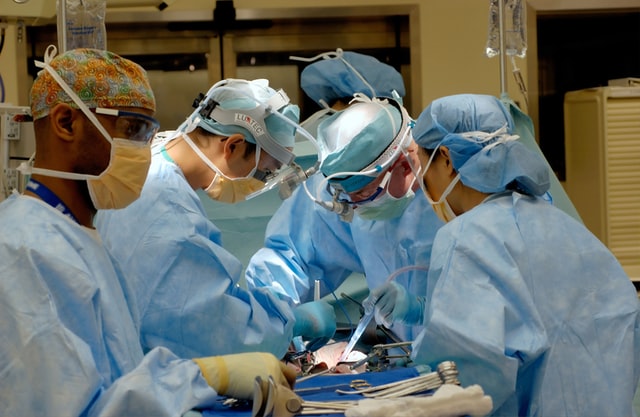Anal fistula surgery-Causes, Symptoms, Prevention & Treatment

An anal fistula is a disease of an infected small tunnel developed between the inside and outside area around the anus. Usually, anal fistulas are developed when the small glands present inside the anus get clogged. This will lead to an abscess and almost half of this abscess will be built up into a fistula. There are many treatments available for anal fistula but most of them required anal fistula surgery.
What causes an anal fistula?
An anal fistula is caused when the small glands present inside the anus get clogged. An anal fistula can also develop from an inflamed intestine called Crohn’s disease. Furthermore, it can also develop from radiation used while treating cancer, trauma, tuberculosis, cancer, and diverticulitis. An anal fistula is also a sexually transmitted disease (STD).
What are the symptoms of an anal fistula?
The symptoms of anal fistula include:
- Frequent anal abscesses
- Pain
- Swelling
- Irritation
- Bleeding
- Fever
- Discomfort
- Pain while pooping
- Fever, shiver, and a feeling of tiredness.
Anal fistula should not be left untreated as they can cause severe complications. One must consult a doctor immediately if one notices any of the mentioned symptoms of anal fistula.
How to prevent anal fistula?
The following are some of the steps you can follow to prevent anal fistula:
- Take exercise regularly
- Take food that contains high fiber
- Always keep your bottom clean and dry
- Avoid straining while pooping
How anal fistula is treated?
The only non-surgical treatment available for anal fistula is fibrin glue. In this procedure, the surgeon injects glue into the fistula. This injected glue helps the fistula to heal by allowing the fistula to seal. Before the procedure, the surgeon will give you a general anesthetic that will make you fall asleep so that you will not feel any pain during the procedure.
To treat anal fistula, surgery is always required as anal fistula do not heal by themselves. There are many different surgical treatments available but your surgeon will choose the best treatment suitable for you after examining the position of your anal fistula and also will check whether your fistula is a single channel or branches in a different direction. Usually, surgery is performed when you are given a general anesthetic and is performed on an outpatient basis, which means you can go home directly after the surgery. The followings are the different surgery options available for the treatment of anal fistula:
- Fistulotomy
- Seton techniques
- Advancement flap procedure
- LIFT procedure
- Endoscopic ablation
- Laser surgery
- Bioprosthetic plug
Fistulotomy
Fistulotomy is the most effective and commonly used treatment for fistula that does not pass through the anal sphincter muscles. In this procedure, the surgeon cuts the whole area of the fistula and can either leave it open allowing it to heal as a flat scar, or stitch the area. Fistulotomy aims to remove the whole pus and fluids from the infected area allowing it to heal faster. This also allows for closing the unnatural gap caused by the fistula. There are some complications after the surgery. They are as follows:
- Fever
- Headache and sleepiness
- Bleeding
- Pain
- Recurrence of the fistula or abscess
Seton techniques
Seton techniques are suitable for treating fistula that passes through the anal sphincter muscle. In this procedure, the surgeon inserts a tight seton (a kind of thread used by the surgeon that is kept inside the fistula for multiple weeks to keep the fistula open) in the fistula which helps in draining and allowing it to heal. There is no need to cut the sphincter muscle in this procedure.
Advancement flap procedure
The advancement flap procedure is also suitable for treating the fistula that passes through the anal sphincter muscle. In this procedure, the surgeon cuts or scrapes out the fistula that enters the bowel and cover the hole with a flap of tissue taken from the inside of the rectum.
This procedure has a low success rate as compared to fistulotomy but there is no need to cut the sphincter muscle in this procedure.
LIFT procedure
LIFT (ligation of the inner sphincter fistula tract) procedure is used when there is a complication to used fistulotomy procedure. It is also suitable for treating fistula that passes through the anal sphincter muscles. In this procedure, the surgeon cuts the skin area above the fistula to move the sphincter muscle apart. The surgeon then sealed both ends and cut them open so that it lays flat.
Endoscopic ablation
In the endoscopic ablation procedure, the surgeon inserts a special tube that has a camera at the end called an endoscope in the fistula which helps in passing an electrode allowing sealing of the fistula. There is also no need to cut the sphincter muscle in this procedure.
Laser surgery
A laser surgery procedure is a safe and effective treatment for anal fistula. In this procedure, the surgeon uses a special device that emits a small laser beam allowing sealing of the fistula. Most people choose laser surgery because in this procedure no major wounds are cut and are less painful. Usually, it takes 1-2 weeks to heal.
Bioprosthetic plug
In the bioprosthetic plug procedure, the surgeon inserts a plug (made from animal tissue) into the fistula that blocks the internal opening of the anal fistula
What are the risks of anal fistula surgery?
The risk of anal fistula surgery depends on where your fistula is located and which surgical procedure you take. They include:
- Infection
- Reoccurrence of fistula
- Bowel incontinence







